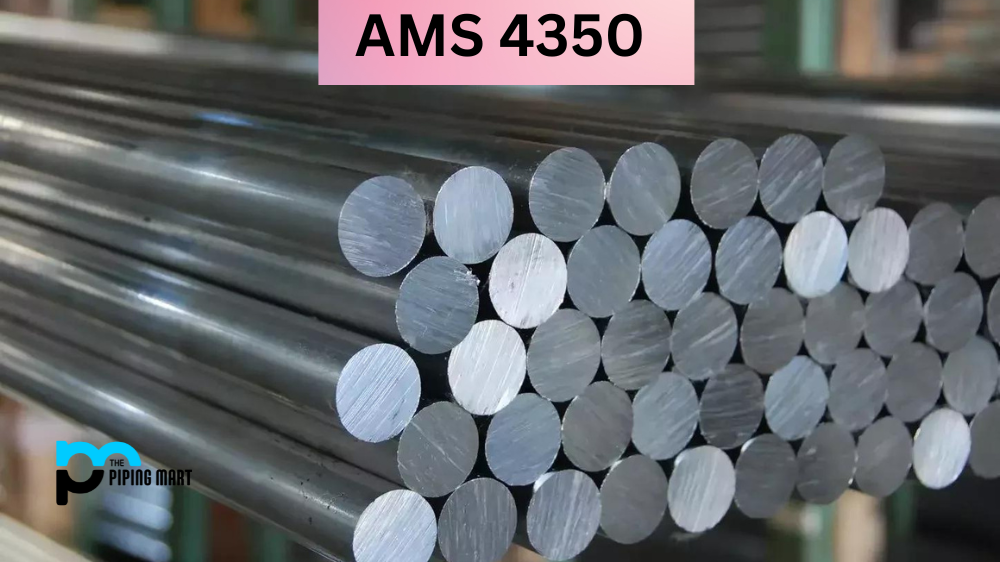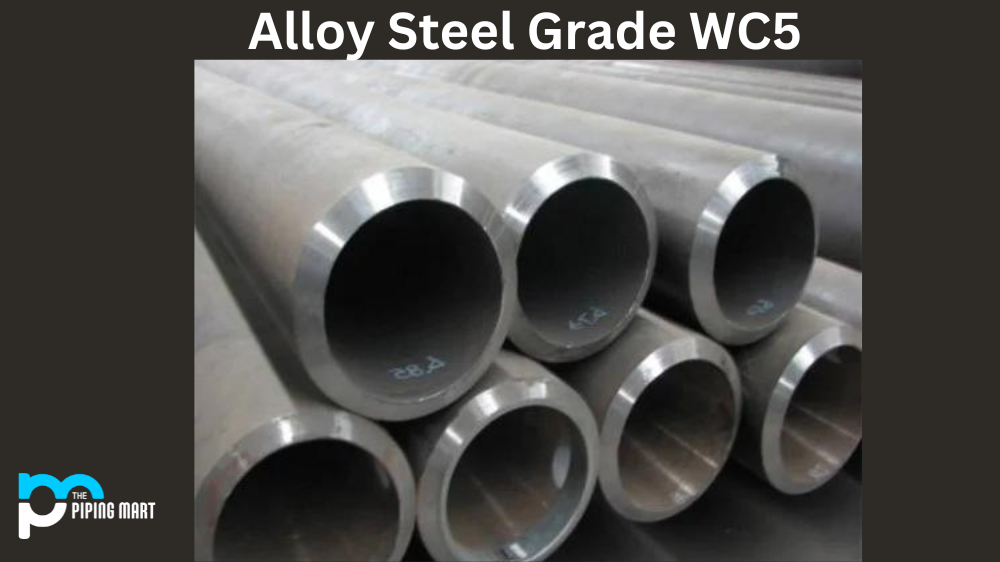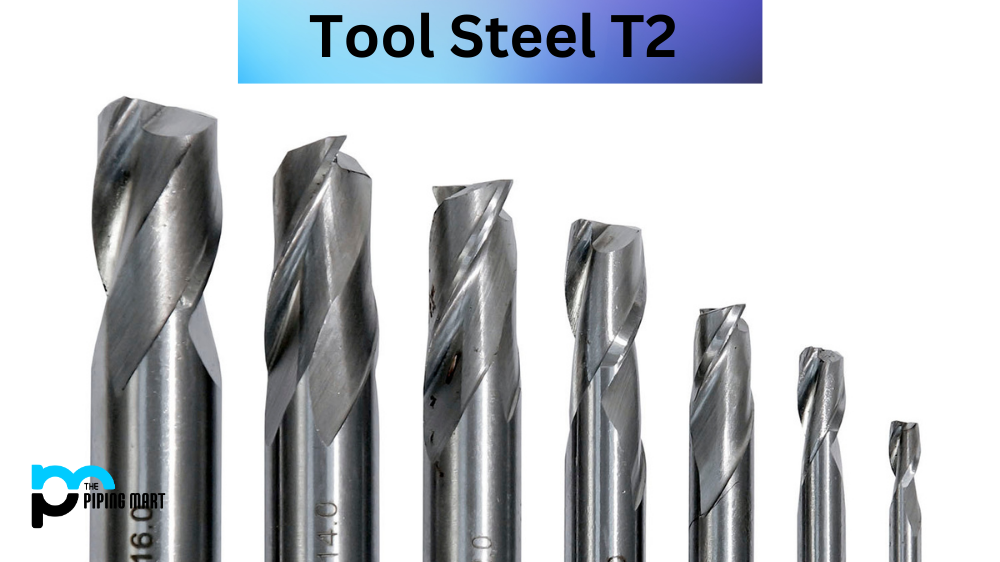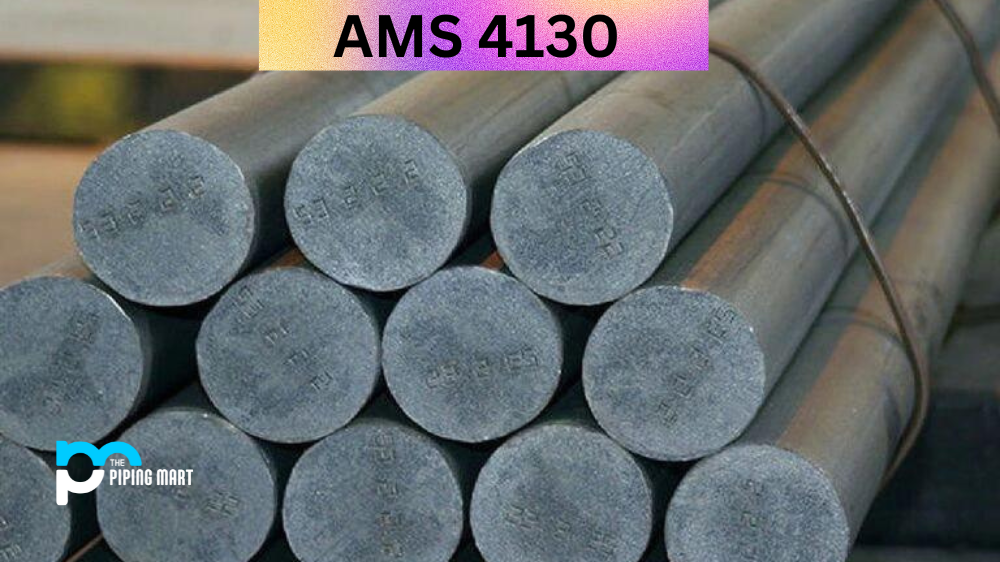AMS 4350 is a high-strength alloy often used in applications requiring high mechanical strength levels. This alloy is known for its exceptional physical properties, such as its low density and high corrosion resistance, making it perfect for aerospace and other high-performance applications. In this blog post, we’ll dive deeper into AMS4350’s composition, physical properties, mechanical properties, and use in various industries.
What is AMS 4350?
AMS 4350 ( also known as Magnesium AZ61A-F)is a high-strength, corrosion-resistant stainless steel alloy for aerospace applications. It provides superior strength at temperatures up to 600°F and is highly resistant to pitting corrosion and stress-corrosion cracking. Its unique properties make it an ideal material for demanding applications such as aircraft engine components, nuclear power reactor components, and cryogenic vessels.
AMS 4350 Composition
AMS 4350 is a nickel-chromium-molybdenum alloy that contains small amounts of titanium, aluminium, and cobalt. The amount of carbon in this alloy is kept low to enhance its mechanical properties. Additionally, it is designed to withstand high-temperature environments and resist oxidation while functioning in a corrosive atmosphere without breaking down.
| Element | Content (%) |
|---|---|
| Magnesium, Mg | 92 |
| Aluminum, Al | 5.8-7.2 |
| Zinc, Zn | 0.4-1.5 |
| Manganese, Mn | ≥0.15 |
| Silicon, Si | ≤0.10 |
| Iron, Fe | ≤0.0050 |
| Nickel, Ni | ≤0.0050 |
AMS 4350 Physical Properties
AMS 4350 boasts several exceptional physical properties, making it an ideal material for various applications. Its low density and high corrosion resistance make it suitable for aerospace and electronic equipment use. It is non-magnetic, making it ideal for medical equipment and sensitive electronic components. It also has strong tarnish resistance, making it perfect for jewellery with high shine requirements.
| Properties | Metric | Imperial |
|---|---|---|
| Density | 1.80g/cc | 0.0650 lb/in³ |
| Melting Point(Incipient melting) | ≥418°C | ≥784°F |
AMS 4350 Mechanical Properties
AMS 4350 has outstanding mechanical properties, including high strength, good elasticity, and high-temperature resistance. It is high tensile strength, and fatigue resistance makes it perfect for aerospace and other high-performance applications. The power and hardness of the alloy can also be easily adjusted through heat treatment.
| Properties | Metric | Imperial |
|---|---|---|
| Tensile Strength | 295 MPa | 42800 psi |
| Yield strength (@strain 0.200%) | 180 MPa | 26100 psi |
| Compressive Yield Strength (at 0.2% offset) | 125 MPa | 18100 psi |
| Ultimate Bearing Strength | 500 MPa | 72500 psi |
| Bearing Yield Strength | 285 MPa | 41300 psi |
| Elongation at break (in 50 mm) | 12% | 12% |
| Elastic Modulus (in tension) | 45 GPa | 6530 ksi |
| Poisson’s ratio | 0.35 | 0.35 |
| Shear Modulus | 17 GPa | 2470 ksi |
| Shear Strength | 145 MPa | 21000 psi |
| Machinability (relative rating, 100=Best) | 100 | 100 |
| Hardness, Brinell (500 kg load, 10 mm ball) | 55 | 55 |
| Hardness, Vickers (estimated from Brinell) | 66 | 66 |
| Hardness, Knoop (assessed from Brinell) | 70 | 70 |
AMS 4350 Uses
AMS 4350 is commonly used in engine components, fuel systems, and aircraft exhaust nozzles. It is also used in hydraulic systems, landing gear assemblies, and other aerospace applications requiring high levels of corrosion resistance and extreme temperatures. This alloy has also been used in high-pressure and high-temperature environments, such as oil drilling, where it can withstand harsh conditions without breaking down.
AMS 4350 Hardness
The hardness of AMS 4350 is quite impressive, and applying heat treatment processes can further improve it. The hardness of the alloy can be adjusted based on what is required for the intended application. Its hardness makes it ideal for applications with critical abrasion and wear resistance.
AMS 4350 Heat treatment
Heat treatment of AMS 4350 is an essential process to achieve the desired results. It involves heating the material in an oven up to 840°C (1544°F) and then quenching it rapidly in water or oil, followed by a tempering cycle. This heat treatment procedure can improve the material’s hardness, strength, and elongation properties while maintaining its wear resistance characteristics.
Conclusion
AMS 4350 material is a special alloy with numerous unique properties. Its use in various industries can be attributed to its strength, hardness, and resistance to corrosion and high-temperature environments. Understanding this alloy’s composition, physical and mechanical properties, and uses, helps you know why it is preferred in some industries and applications. With its versatility and strength, AMS 4350 plays an essential role in the engineering and manufacturing industry.

Meet Bhavesh, a seasoned blogger with a wealth of knowledge and experience. From metal products manufacturing to retail, Bhavesh has a diverse background in various industries and is dedicated to sharing his insights and expertise with readers.




